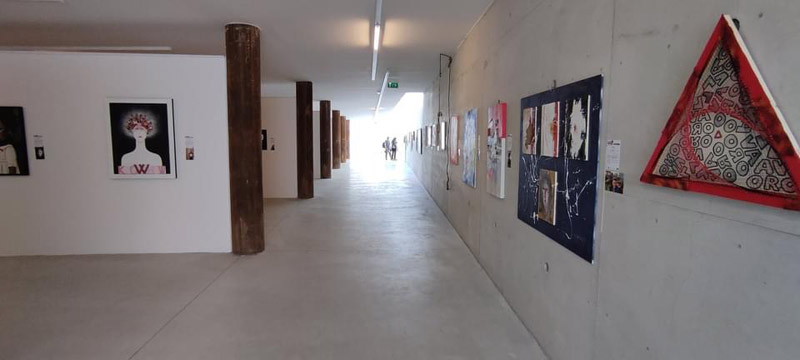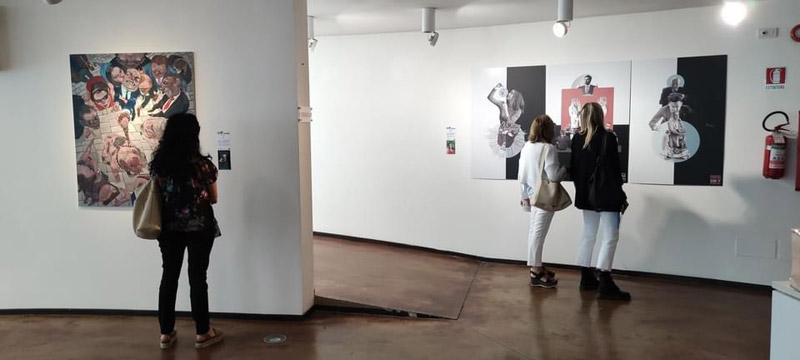International exhibition
«HUMAN RIGHTS? @WORK»
(Exhibition photos)
2021
International group exhibition
of AIAPI – UNESCO
at the Opera Campana dei Caduti,
Rovereto, Italy
Participation with the work «Human Rights and Labor». M.S. is writing about the work:
The artwork is consisted of a black and white dashboard, referent to the Unformed.
Over it, there are three knitted banners of the three basic colors. It’s a reference to like color shades can be formed in the physical world from the three basic ones, man through work can create whatever could imagine.
Trying to emphasize on rights at work; iniquity; exploitation and inequity; I end up to believe that it surely every approach for thoughts and concerns is important but there was not enough to express myself artistically. I decided to work with 5 subjects in which the artwork gives attention to Human Rights and Work; Might be 5 signs that could be placards of claiming and fight for.
From exhibition’s press release:
Goal 8 of the UN 2030 Agenda reads as follows: Encourage lasting, i nclusive and sustainable economic growth, full and productive employment and decent work for all. […] The power of art, as has happened in every era, is to tell about the contemporary, denounce its aberrations, enhance its excellence and potential and create a communication bridge to propose new solutions for a more creative and more effective future.
































































